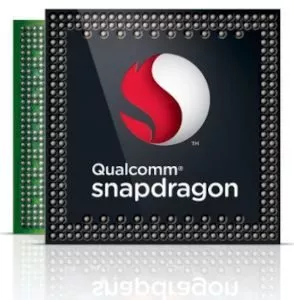Easy Solutions to Fix Slow Issues on Samsung Galaxy M55s. This is a 5G smartphone that works with the Android 14 operating system with a Super AMOLED Plus, 120Hz, 1000 nits (HBM) 6.7 inches screen size. Some users get lagging problems after using it for several months. We will give some tips and tricks to make the Samsung Galaxy M55s run more faster.
Why Does the Samsung Galaxy M55s’ Performance Become Slow and Unresponsive?
This phone is powered by the Snapdragon 7 Gen 1 processor with 8 GB RAM. Any apps will consume RAM for running in the background or foreground. If we install too many apps together, then our Samsung Galaxy M55s RAM will be insufficient. Please make sure our RAM is sufficient. If this phone does not have enough free RAM, then some applications must force-close to give more free RAM; this process will make the Samsung Galaxy M55s lag for a while.
Usually, the slow performance happens because of too many applications running in the background like chatting, social media, games, and some other more. They will standby in the background to wait for data updates and some commands. If many applications run in the background together, then the Samsung Galaxy M55s RAM and processor resources will be insufficient.
How to Boost the Speed Performance of the Samsung Galaxy M55s and Make It Run More Faster?
- First steps that we should do are a soft reset or reboot to remove temporary files and caches. Usually, after our phone finishes rebooting, then the speed performance might become faster.
- Please uninstall all unused applications. We can try to find from menu Setting > Apps, and choose inactive applications, then choose Uninstall.
- Some factory default applications do not have Uninstall button options, but we can disable them by choosing the Disable button at menu Setting > Apps > Disable at our phone. This step also can reduce the usage of RAM and processor resources.
- If all solutions still do not improve the performance, then please consider doing a hard reset to factory default. Follow steps at the Samsung Galaxy M55s Hard Reset / Reformat page using hardware button combination Key.
Solutions For Slow Gaming Performance On the Samsung Galaxy M55s
To ensure smooth gaming performance on the Samsung Galaxy M55s, it’s important to have sufficient RAM and storage available. The phone is equipped with the Snapdragon 7 Gen 1 processor and Adreno 644 GPU for optimal gaming performance.
Additionally, the phone supports expandable storage via a microSD card, providing ample space for photos, videos, and other files. It also boasts a 5000mAh battery with 45W fast charging for minimal downtime. The device runs on Android 14 with Samsung’s One UI 6.1, offering a clean and user-friendly interface.
Why Is the Samsung Galaxy M55s’ Speed Lagging After an Upgrade?
SAMSUNG GALAXY M55S is a great option for anyone who looking for a powerful and great smartphone. It was released with the Android 14 operating system with the One UI 6.1 user interface. Some Android firmware upgrades are released to improve performance and features. However, some users get slow speed troubles or lagging after an upgrade.
What should we do? In most situations, performing the upgrade process will not make our Samsung Galaxy M55s become slow. But if this problem happens, maybe some applications are corrupt or cannot run properly with the new version of the operating system. Therefore we suggest backing up all important data and doing a hard reset or reformatting with the new operating system.
Please note that doing a hard reset will not downgrade the operating system.
How To Speed Up the Samsung Galaxy M55s?
The Samsung Galaxy M55s has a big 6.7-inch screen that is fun for supporting gaming and working. It is powered by the Octa Core processor Snapdragon 7 Gen 1 that uses 4 nm FinFET technology. We have to make sure our 8 GB RAM is enough for any apps that we need to use every day.
- Clear Phone Cache: Regularly clear the app cache to free up storage space and improve Samsung Galaxy M55s performance.
- Uninstall Unused Applications: Remove apps that we no longer use to reduce RAM and processor usage.
- Update Applications and OS: Keep our apps and Android OS up to date for better performance and security.
- Use Lighter Apps: We can choose lightweight alternatives to reduce resource-intensive apps.
- Restart Our Phone: Reboot our phone periodically to refresh system resources.
Please note that some menu options will be different because of firmware update versions or some other possibilities. Please use the comment box below for other questions to discuss.

